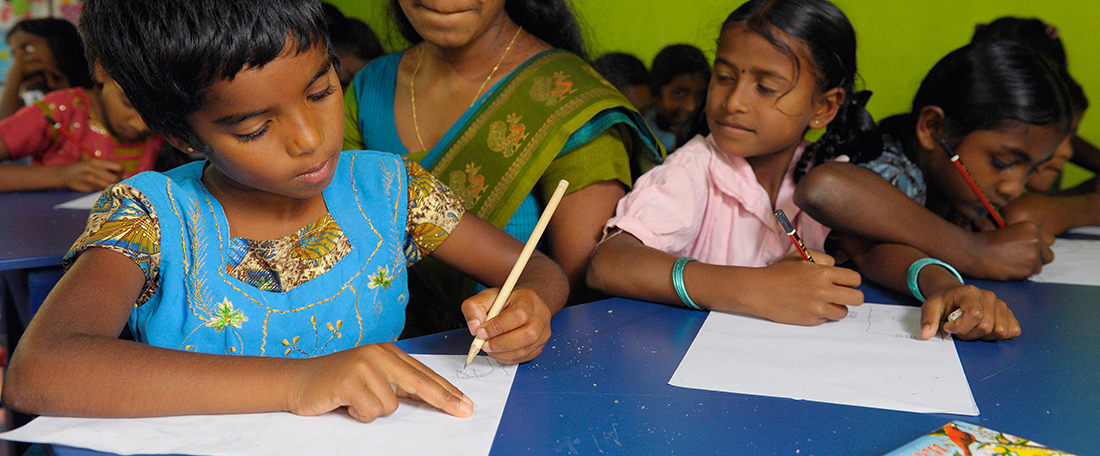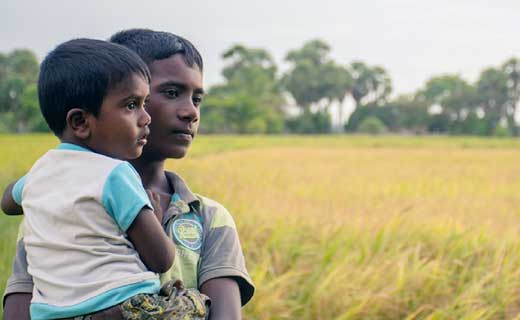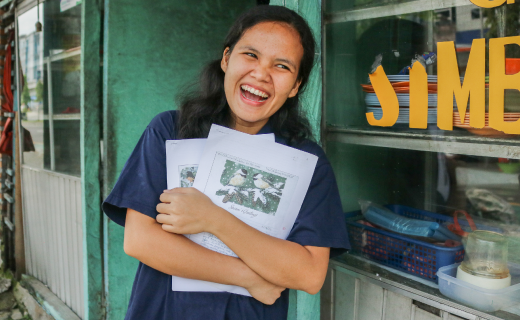Sri Lanka
Capital City: Colombo
Population: 22.5 million
Life expectancy: male 73.7 years, female 80.8 years
Population with improved drinking water: urban 98.5%, rural 95%
Infant mortality rate: 8.2 deaths/1,000 live births
Percentage of children under the age of 5 underweight: 20.5%
Literacy Rate: male 93%, female 91%
Religion: Buddhist (official) 70.2%, Hindu 12.6%, Muslim 9.7%, Roman Catholic 6.1%, other Christian 1.3%, other 0.05% (2012 est.)
Percentage living on less than $1.90 a day = 6.7%
A little bit of history
The beautiful island of Sri Lanka, formerly Ceylon, sits to the south east of India. Over the years the Portuguese, Dutch and British have all staked a claim on the island that was named Sri Lanka in 1972 meaning ‘resplendent island’.
Its history has been pretty turbulent though, with the two main ethnic groups being locked in civil war since the early 1980s. Clashes between Sinhalese majority and Tamil separatists, known as the Liberation Tigers of Tamil Eelam (LTTE) have led to more than 64,000 deaths, mostly civilians, and many thousands of children being recruited as child soldiers.
How the country makes a living
For centuries Sri Lanka was renowned as a centre for tea cultivation and, indeed, Ceylon tea still has a global reputation. However, since the end of the 26-year conflict with the Liberation Tigers of Tamil Eelam, Sri Lanka’s economy has expanded considerably.
A lot of emphasis has been put on developing the war-torn north of the country with both small and medium enterprises and a general increase in all agricultural activity. Just as the country was enjoying a period of stability, the 2004 tsunami killed tens of thousands of Sri Lankans, decimating much of the coastline and wreaking havoc for the country’s fishing industry.
Challenges faced by children
Under-nutrition remains a key concern in Sri Lanka with the number of underweight children having increased since 2009. A quarter of children under-five are underweight and 13% have stunted growth. Such early setbacks then negatively impact children’s development and performance at school.
In comparison to some of its neighbours, Sri Lanka seems to have made good progress in terms of access to school. However, there are huge disparities between the availability and quality of education between urban and poorer rural areas. In fact, a child from a rural farming community is only half as likely to complete the compulsory level of secondary education and one-tenth as likely to reach post-secondary education as those from urban communities.
Compassion in Sri Lanka
Compassion began working in Sri Lanka through our local development partner in 2010 with the launch of our Child Survival Programme. The Child Sponsorship Programme was then started in January 2012. Currently, more than 14,599 registered children participate in 79 child development centres.
What sponsored children learn in Sri Lanka
Project days in Sri Lanka are generally held on Saturdays. During a typical project day, sponsored children will participate in activities such as ...
- 8.00am – 10.30am Songs, games and introductory time.
- 10.30am Break time. Children can play in a safe environment and develop friendships.
- 11.00am Social lessons. From conflict resolution to developing healthy self-esteem, children who often come from challenging home environments are taught social and personal skills.
- 12.00pm Lunch and social time. The meals usually consists of rice, meat or fish, vegetables and fruit.
- 13.00pm Health lessons. Children are taught practical health and hygiene tips.
- 14.00pm Letter writing and career planning. Older children work with project staff to identify their strengths and interests, setting realistic goals for their future.
Additional activities offered by projects in Sri Lanka:
- Typical extracurricular activities include camps, sporting events, field trips and talent shows.
- Parent meetings are held so project staff members can build relationships with families.





